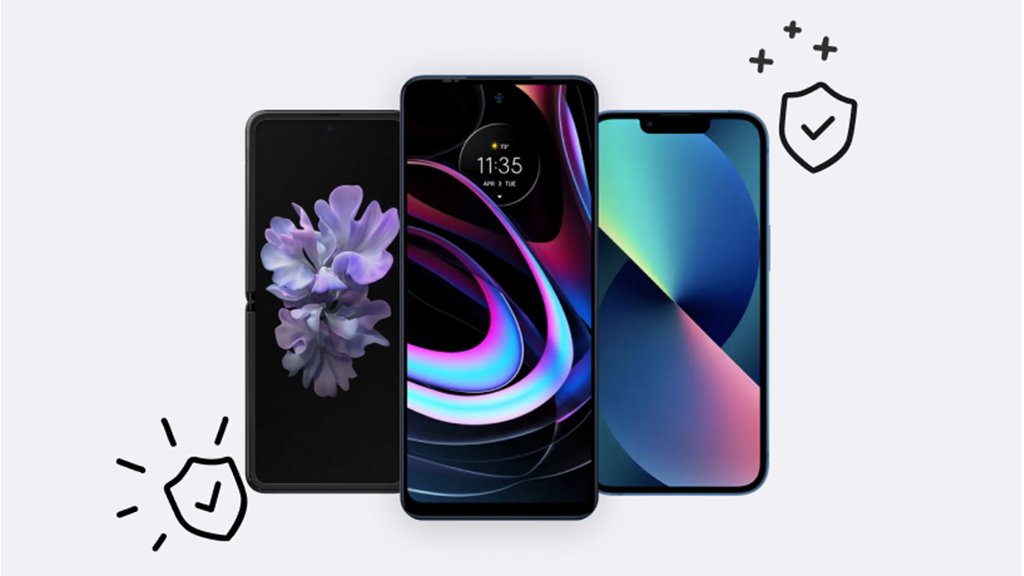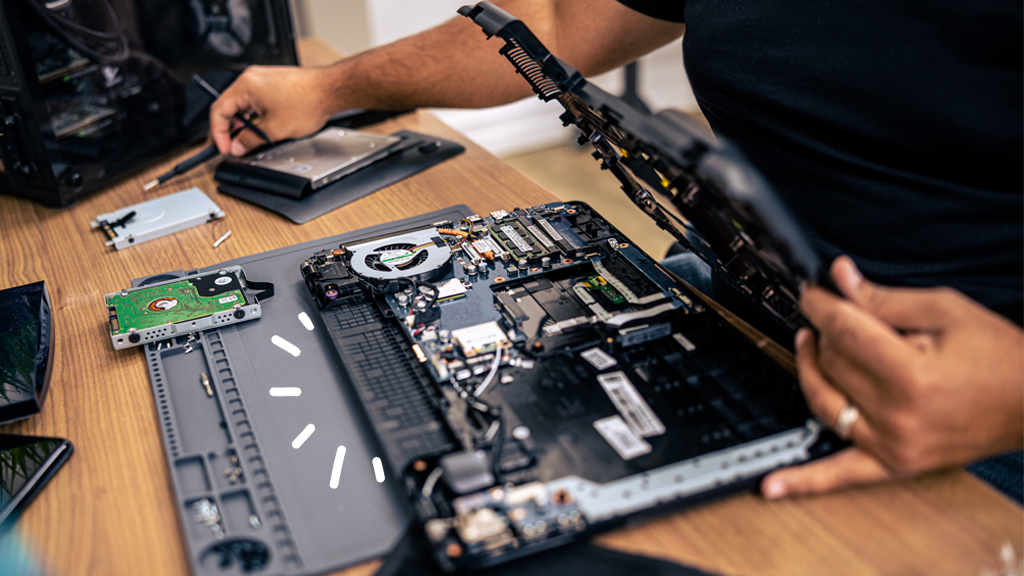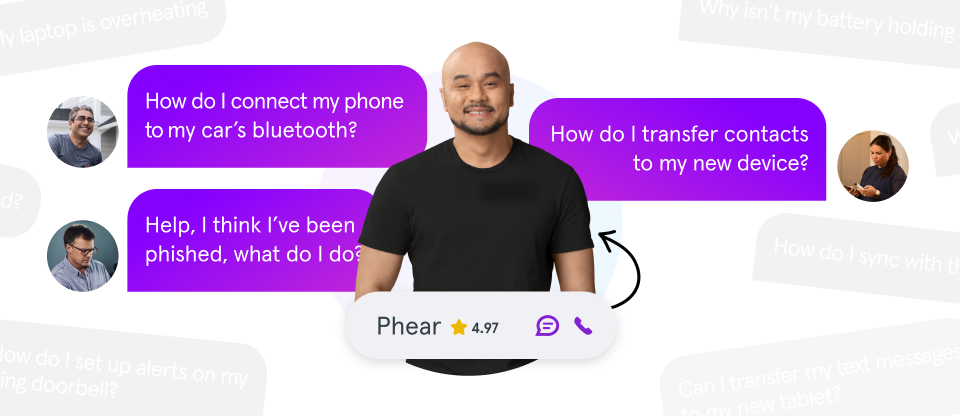What is phone hacking?
Phone hacking has become a prevalent issue in today's digital age. It refers to unauthorized access to your mobile device, compromising your personal data, privacy, and security. Often hackers break into your bank accounts for financial gain or social media accounts to steal your identity or credit card details. With bad actors employing sophisticated techniques, it's crucial to understand the common signs of a hacked phone, what to do in such situations, and preventive measures to safeguard your device.
At Asurion, our experts work to provide our 300 million customers solutions for all of their tech care needs, including digital security. Here are their tips on how to tell if your phone has been hacked and what to do if it happens.
Common signs your phone has been hacked
Noticing unusual behavior or signs of hacking can help you take immediate action. Look out for the following indicators on your iPhone or Android phone:
- Sudden battery draining: If your smartphone battery runs out faster than usual, it may be a sign of malware or suspicious activity.
- Slow performance: A hacked phone often experiences lags, freezes, or crashes due to malicious software running in the background.
- Data usage spikes: Unexpected and significant increases in data usage could suggest that your phone is compromised.
How to check if your phone has been hacked
To determine whether your phone has been hacked, follow these steps:
- Scan for malware and viruses: Utilize reputable antivirus software to scan your device thoroughly. It can detect and remove any malicious programs that may have been installed without your knowledge.
- Look for unusual activity or changes in your settings: Regularly check your phone's settings for any modifications or activities that seem out of the ordinary. Ensure that your settings align with your preferences.
- Check for suspicious text messages, emails, or calls: Be cautious of unsolicited messages, emails, or calls asking for personal information or containing suspicious links, as they can be attempts to hack your phone.

Don’t waste time scrolling
Life is short. Ask our experts and get answers now.
Steps to take if your phone has been hacked
If you suspect that your phone has been hacked, take the following steps to protect your privacy and restore your phone's security:
Change your passwords and delete any suspicious apps or files
Immediately change your passwords for all online accounts, including email and social media. Remove any suspicious apps or files that could compromise your device further
Enable two-factor authentication (2FA) on all your accounts
Implementing 2FA adds an extra layer of security by requiring a secondary verification method, such as a code sent to your phone, along with your password.
Contact your network provider or mobile carrier
Inform your network provider about the hack and seek their assistance in securing your account. They can offer guidance and may even be able to track unauthorized activities.
Install antivirus software and security patches
Install a robust antivirus security app to protect your device from future threats. Additionally, regularly perform software updates to ensure that you have the latest security patches.
Factory reset your device as a last resort
If all else fails and you're unable to regain control of your phone, consider performing a factory reset. This will erase all data from your device, so ensure you have a backup before proceeding. Check out our factory reset guide for step-by-step instructions.
Preventing future hacks and cyber attacks to keep your phone safe
Protecting your phone from future hacks and cyber attacks is essential. Follow these preventive measures:
Use unique and strong passwords for all accounts
Avoid using the same password across multiple platforms. Opt for complex passwords that include a combination of letters, numbers, and symbols. Password Managers are a good tool for creating secure, complicated passwords.
Avoid connecting to public Wi-Fi networks if possible
Public Wi-Fi can be a breeding ground for hackers. If you must connect, use a virtual private network (VPN) to encrypt your data and ensure a secure connection.
Keep your software up-to-date
Regularly update your phone's software, including apps, to benefit from the latest security patches and bug fixes.
Be wary of potential phishing attacks
Exercise caution when clicking on potentially malicious links or downloading attachments from suspicious emails or messages. Be vigilant about phishing attempts and never share sensitive information through unsecured channels.
By being proactive and following these steps, you can protect yourself against phone hacks and maintain the security of your mobile device. Remember, prevention is key in the digital world we live in today.
Tried these steps and still need help? We got you. Get your tech problem solved when you call or chat with an expert now.





